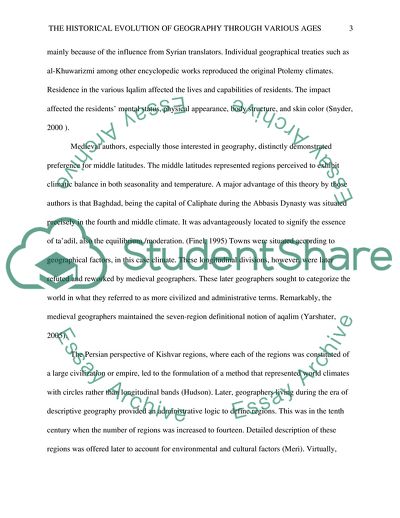Cite this document
(The Historical Evolution of Geography through Various Ages Essay Example | Topics and Well Written Essays - 1250 words, n.d.)
The Historical Evolution of Geography through Various Ages Essay Example | Topics and Well Written Essays - 1250 words. https://studentshare.org/geography/1811743-1-the-relationship-between-space-and-human-behavior-which-causes-the-other-2-the-functions-of-geography-through-the-ages
The Historical Evolution of Geography through Various Ages Essay Example | Topics and Well Written Essays - 1250 words. https://studentshare.org/geography/1811743-1-the-relationship-between-space-and-human-behavior-which-causes-the-other-2-the-functions-of-geography-through-the-ages
(The Historical Evolution of Geography through Various Ages Essay Example | Topics and Well Written Essays - 1250 Words)
The Historical Evolution of Geography through Various Ages Essay Example | Topics and Well Written Essays - 1250 Words. https://studentshare.org/geography/1811743-1-the-relationship-between-space-and-human-behavior-which-causes-the-other-2-the-functions-of-geography-through-the-ages.
The Historical Evolution of Geography through Various Ages Essay Example | Topics and Well Written Essays - 1250 Words. https://studentshare.org/geography/1811743-1-the-relationship-between-space-and-human-behavior-which-causes-the-other-2-the-functions-of-geography-through-the-ages.
“The Historical Evolution of Geography through Various Ages Essay Example | Topics and Well Written Essays - 1250 Words”. https://studentshare.org/geography/1811743-1-the-relationship-between-space-and-human-behavior-which-causes-the-other-2-the-functions-of-geography-through-the-ages.


